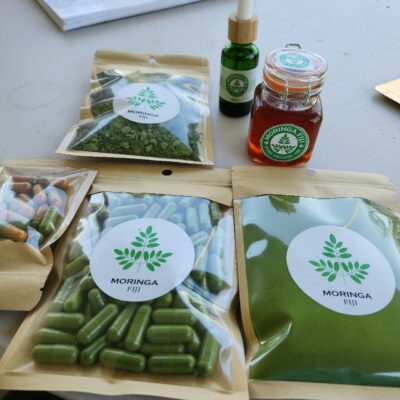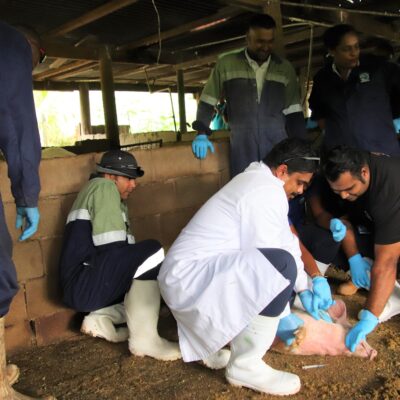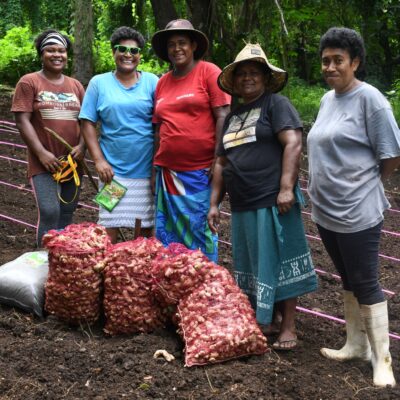Fiji
Fiji's economy is the second largest economy in the Pacific, with total GDP of approximately 6.5 billion AUD in 2021. Prior to COVID-19, tourism contributed nearly 40% of GDP and agriculture contributed 8%, the latter remaining the main source of livelihood for nearly half of rural Fijians. Kava and taro dominate exports and potentially involve large numbers of local households. However, other fresh produce such as ginger and turmeric show increasing promise.
The PHAMA Program was established in Fiji in 2011 to support government and industry to utilise export opportunities for fresh agricultural products; identify and develop new export opportunities for fresh and processed products; and strengthen contingency planning and surveillance for pests and diseases of plants and animals.
In 2018, the program entered a new phase now known as PHAMA Plus which will continue until 2026. PHAMA Plus works with businesses and the public sector to maintain and improve trade of agricultural products by assisting them to meet export market requirements. PHAMA Plus also assists with market research and market
development activities in terms of new export products.
To maximise impact, the program works with key actors in the market system to generate benefit among farming households. The Program was instrumental in opening new export markets, and maintaining and improving current export marketing pathways.
PHAMA Plus continues to work in Fiji on biosecurity and market access constraints, quality assurance and certification systems and through targeted support to agribusinesses that drives benefit to farming households.

Plant Extracts
The plant extracts sector comprises secondary products that are derived from botanical source materials (roots, nuts, flowers, and fruits) through a physical or chemical extraction process (extrusion, distillation, solvent etc.). The sector includes extracts that are typically formulated into health and wellness products, cosmetics, food ingredients, botanical drug pathways, pharmaceuticals o ...Read More
Biosecurity, Quality and Standards
International export markets are associated with complex biosecurity, certification and quality requirements, market development costs, transport costs, delivery risks and competition. Agricultural, horticultural, food and forestry product exports will not happen, or be severely constrained, in the absence of effectively operating biosecurity, quality and standards (BQS) functions. The e ... Read More
Kava
Kava makes a significant contribution to rural livelihoods in Pacific Island producing countries. It is an important cash crop and a significant source of income and employment for rural households and those involved in its harvesting, processing and sale. It has important cultural and social dimensions, including in Australia and New Zealand, and is used internationally for medicinal and ...Read More
Fresh Produce
In Fiji, kava and taro dominate exports and potentially involve large numbers of local households. However, other fresh produce show increasing promise with potential for export growth are: 1) taro 2) cassava 3) ginger 4) turmeric 5) vegetables. Fresh produce includes export-oriented tree crops (papaya, mango, breadfruit, coconut), root crops (cassava, taro, ginger and turmeric) and veg ... Read More





